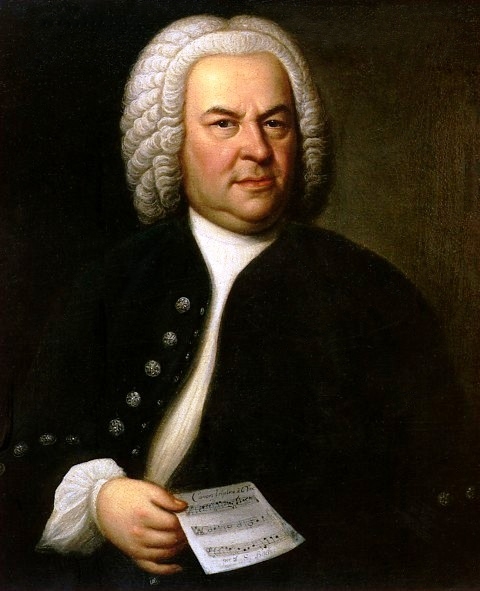JUNE 9, 2022 – (Cont.) “Bach the church musician, wrote St. John Passion and St. Matthew Passion, ‘John’ and ‘Matthew’ each being a gospel writer, four gospels—plus the Epistles and the Book of Revelation constituting the New Testament . . .” I stopped, realizing I’d slid recklessly back down the rabbit holes of religion, scripture, and contextual meaning of “Passion.” Except, how could I skirt the fact of Bach’s close affiliation with Christianity?
“Sorry—back on track. Apart from its religious aspects, this next work by Bach, Erbarme dich, mein gott, is one hell of a heavenly piece of music. I don’t want to prejudice your reaction, but I need to say up front that over the generations this music has brought many a human heart—religious and non-religious—to tears.”
With that I clicked on the play button ( https://www.youtube.com/watch?v=aPAiH9XhTHc ), and the gorgeous strains of Bach’s famous recitative mixed with fragrance from the blossoming crab-apple tree next door to fill our porch with divinity. Again, the alien’s filaments pulsated in time with the meter of the piece, and unexpectedly, the thing rose gracefully from the glass table on which it’d been resting since the outset of our conversation. The alien revolved slowly in mid-air, and I interpreted its newly assumed position as a sign of celestial inspiration; evidence that the music of Bach was imbued with intergalactic appeal after all; corroboration, even, of the existence of god or God. For the five-minute duration of the piece, I remained transfixed by this sight and revelation.
“I see that this music touched you just as it affects us humans,” I said after the last bar ended.
“What?”
“I said, ‘I see how this music touches you . . .”
“Oh, the music—how does it touch me? It didn’t touch me, unless sound waves hitting my sensors counts. Again, I noticed them—the sound waves, but these were much longer waves, I noticed . . .”
I didn’t listen to the rest of the alien’s sentence. I realized that to the alien, Erbarme dich meant nothing to the heart, which begged the question, Did the alien even have a heart?
I extended the experiment of exposing the alien to classical music by playing recordings of a Chopin Nocturne and Samuel Barber’s Adagio for Strings—“quite possibly the saddest piece of music ever written,” as I’d described it in my essay on classical music.
I watched the alien expectantly, hoping for some sign of human-like emotion, but none appeared. Just then I recalled an inscription across the back of Kresge Auditorium at Interlochen Center for the Arts, where two of my three violin-playing sisters and I attended high school in the wilds of Michigan. The open-air but roof-covered auditorium seated nearly 4,000, and a row of tall bay windows on the wall behind the vast stage provided a scenic view of one of the two handsome lakes that gave “Interlochen” its name. The large-lettered epigraph above the windows read, Dedicated to World Peace and Understanding through the Universal Language of the Arts. I noted to myself in jest that the operative word, apparently, was “World,” not “Intergalactic.”
I decided I’d failed in having touted music as our “best stuff.” But could it be that maybe, just maybe, our “best stuff” of the human mind, heart, and soul was better than the alien’s “best stuff”?
(Remember to subscribe to this blog and receive notifications of new posts by email.)
© 2022 by Eric Nilsson
